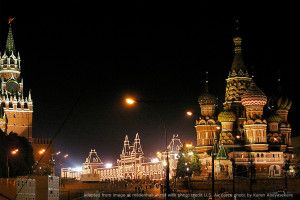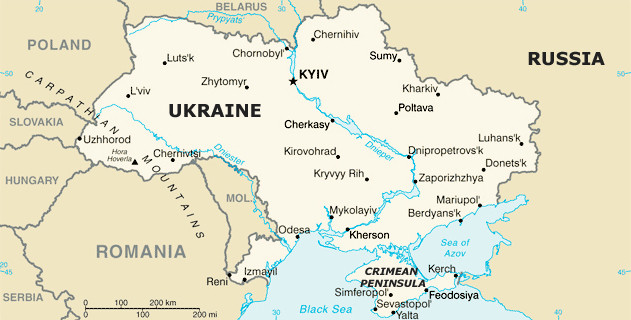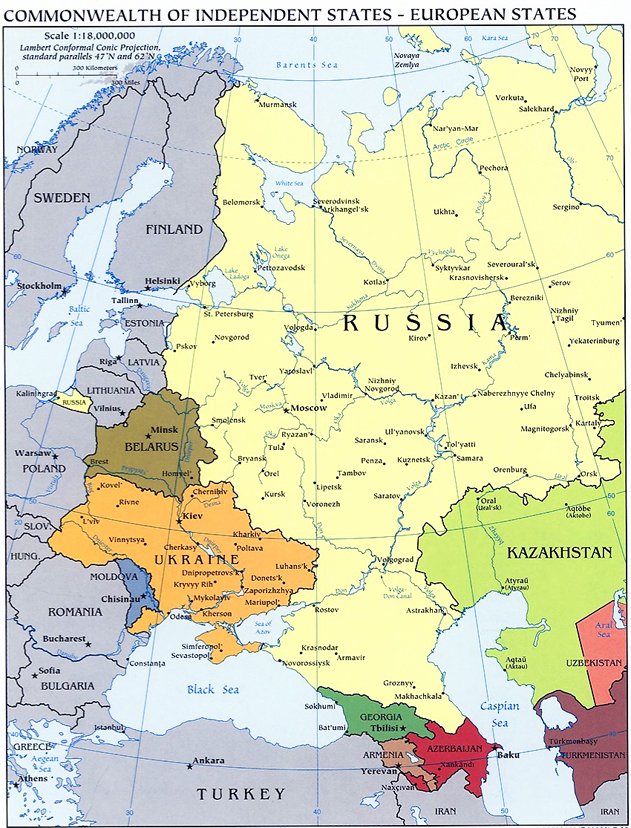RUSSIA & UKRAINE – Johnson’s Russia List :: Fred Weir Retrospective 1999-2016 :: Tuesday, 13 September 2016

To inquire about a subscription to the full Johnson’s Russia List e-mail newsletter, e-mail David Johnson at davidjohnson@starpower.net
[check back for updates, including more links; links also posted to facebook and twitter]
Johnson’s Russia List :: Fred Weir Retrospective (Christian Science Monitor)
Tuesday, 13 September 2016
A project sponsored through the Institute for European, Russian and Eurasian Studies (IERES) at The George Washington University’s Elliott School of International Affairs
The contents do not necessarily represent the views of IERES or The George Washington University.
JRL homepage: russialist.org – JRL on Facebook: facebook.com/russialist – JRL on Twitter: @JohnsonRussiaLi
Support for JRL is provided in part by a grant from Carnegie Corporation of New York to the George Washington University and by voluntary contributions from readers.
Support JRL: russialist.org/funding.php – Donate Online: direct link
0. The Walrus (Canada): Forged in Fire. A red diaper baby in Russia witnesses the rise of Vladimir Putin.
1. Christian Science Monitor: August 1999: Tunnel is longer, but light still on. Russia is on its fourth premier after a year of upheaval. But the news isn’t all bad.
2. April 2000: Under Western fire, Russians close ranks. From politicians to truck drivers, Russians are irked at criticism, lack of support on Chechnya campaign.
3. May 2000: Putin moves to govern governors. On Saturday, Russian President Putin issues a decree to claw regional power back to the Kremlin.
4. July 2000: Putin’s recipe for a strong Russia. The enigmatic leader will seek support for his agenda at next week’s Group of Eight summit in Japan.
5. April 2001: The deja vu in bold Putin agenda. In yesterday’s state-of-the-nation speech, the president spoke of change, efficiency, radical reform.
6. June 2001: Capitalism hits home in Russia. Next month, the Kremlin unveils a plan to wean the country away from housing and other subsidies.
7. February 2002: Putin’s duel with the bureaucrats. Several recent reform proposals are losing momentum in a labyrinth of self-serving officialdom.
8. August 2003: Young, Russian, and upwardly mobile. Stability feeds the middle-class hopes of a new generation.
9. November 2003: Kremlin vs. the oligarchs. The excesses of Russia’s rapid privatization have come back to haunt the nation’s tycoons.
10. February 2004: Why Russians look to Putin. With approval ratings above 70 percent, Putin is expected to easily win a second term next month.
11. December 2005: Russia reins in ‘foreign influence.’ The legislature wants to tighten state control of 450,000 civic groups.
12. December 2006: Putin’s Russia: better and worse. The mysterious poisoning of an ex-KGB spy has heightened debate over the nation’s direction.
13. April 2007: Boris Yeltsin’s legacy: mixed reviews. Many associate the former Russian president more with Russia’s decline than with the USSR’s demise.
14. October 2007: Ukraine’s democracy is increasingly rare light in ex-Soviet bloc. In the run-up to Sunday’s elections, Ukraine saw open competition between sharply differing political parties, a wide spectrum of media coverage, and little direct state interference.
15. August 2008: Russia-Georgia conflict: Why both sides have valid points. As Russian troops prepare to withdraw from Georgian bases and cities they invaded last week, a look at the two contradictory stories of what happened and why.
16. August 2009: Ten years on, Russia’s Putin has gone from ‘nobody’ to unshakeably powerful. He has used a vigorous image and ruthless political strategy to recentralize state power. Some analysts expect he will soon formally return to the presidency.
17. September 2009: Georgia started war with Russia, says EU. Georgia was blamed for starting the 2008 war with Russia, a new EU report says. But it also says Russia then invaded South Ossetia and Abkhazia.
18. December 2009: Why nearly 60 percent of Russians ‘deeply regret’ the USSR’s demise. A new poll finds that many Russians – particularly older, poorer, and more rural people – ‘deeply regret’ the collapse of the Soviet Union. How could that be?
19. November 2010: Wikileaks release: in Russia, fear of damage to future US relations. As Wikileaks prepares to release millions of confidential cables, Russian diplomats worry about their ability to talk frankly in the future – while some politicians and anti-Kremlin activists are concerned about private conversations.
20. February 2011: Why Russia’s Medvedev can’t seem to deliver. While Russian President Dmitry Medvedev came into office advocating political and cultural reforms, so far he hasn’t delivered significant change.
21. March 2012: Who’s not congratulating Putin: Russia’s middle class. But underscoring a split in Russian society, thousands also came out for a pro-Putin concert.
22. April 2012: Medvedev’s legacy in Russia: small victories in Putin’s shadows. Despite making little headway on corruption or human rights, Russian President Dmitry Medvedev did change Russia. ‘The ice began to melt and Putin won’t be able to refreeze it,’ said one expert.
23. May 2012: Putin steps up to run a vastly changed Russia. The powerful protests before and during Vladimir Putin’s inauguration today signal the fraying image of a Russia united behind its leader.
24. May 2012: Ambassador McFaul, driver of US-Russia ‘reset,’ becomes his own obstacle. US Ambassador Mike McFaul has been a Kremlin target since his arrival – most recently being slammed as ‘unprofessional’ and accused of spreading ‘blatant falsehoods.’
25. September 2012: For first interview of new term, Putin puts priority on foreign audience. Putin opined on Obama vs. Romney, crackdowns in Russia, and Pussy Riot in a 40-minute interview given, unusually, to an English-language state channel instead of a bigger outlet.
26. October 2012: Vladimir Putin 2.0: A harder, eastward-looking presidency. Vladimir Putin, once again in the Kremlin’s top post, faces a far more divided Russia than he did during his first stint, and he’s taking a more authoritarian line to match.
27. October 2012: Ukraine elections confirm divisions over Russia, Europe. The results, which keep the ruling party in power with a still-strong opposition, show the divide between the country’s Europe-leaning west, moderate center, and Moscow-oriented east.
28. December 2012: Russia’s adoption ban exposes political rift. Russian President Putin is expected to back the parliament’s adoption ban. But the move has exposed a rare split in the government, with some top officials speaking out against the ban.
29. May 2013: Kremlin orders Russian pollster to register itself as ‘spy.’ Russian prosecutors say that the Levada Center must register as a ‘foreign agent’ – a term synonymous with ‘spy’ in Russian – because 3 percent of its budget comes from abroad.
30. July 2013: Russia’s top lawyers sound alarm about government abuse of the Constitution. A group of Russia’s most prominent lawyers have penned an open letter warning that the country’s constitutional order is under threat from authorities’ abuse of the law.
31. September 2013: War in Syria: The stakes for Russia. For Russia, Bashar al-Assad’s Syria is their last remaining ally in the Arab world. The country fears regional chaos could spread if Assad’s regime is toppled.
32. December 2013: Gay Russians are equal? One club asks Putin to take closer look. In an open letter to Vladimir Putin, the owner of Moscow’s biggest gay nightclub says it has come under repeated attack recently, but that police refuse to help.
33. February 2014: Putin sees ‘containment’ in West’s Sochi criticism. Does he have a point? The foreign coverage of Sochi has been full of reports of ephemeral foibles, spurring Putin’s complaints. But the media have also raised serious issues that Russia has yet to address.
34. February 2014: Russia slams Ukraine upheaval as illegal ‘armed uprising.’ The Russian prime minister attacked the legitimacy of Kiev’s government, which ousted President Yanukovych over the weekend. But Moscow is waiting to see what happens next before acting.
35. March 2014: Putin’s new soft-power media machine. Russia’s new state media is helping shape perceptions in Ukraine and the rest of the Russian-speaking world. It is slick, professional, and rooted in heavily spun truth.
36. May 2014: Russian PM chastises US for doing ‘what the Soviet Union did in the past.’ Russian Prime Minister Dmitry Medvedev argued that President Obama’s lack of tact is ‘slowly but surely moving’ the US and Russia ‘toward a second cold war.’
37. July 2014: Has Putin reached his limit on his willingness to intervene in Ukraine? Putin said that he would hold Poroshenko responsible for new bloodshed in the east, but he appears disinclined to become more involved in Ukraine’s conflict.
38. December 2014: Healthcare reform brings protesters to the streets – in Russia. Thousands marched in Moscow on Sunday over the city’s shuttering of 28 hospitals and firing of up to 10,000 medical personnel. Proponents say the move, part of a national reform, is necessary to improve healthcare, but critics don’t see how.
39. February 2015: Putin’s ‘hands-on management’: How the Russian leader makes it personal. The Kremlin has been able to make its decisions without public scrutiny, despite the disparate Russian elites jockeying for the president’s ear. Even those directly involved have no idea with whom else Putin may be consulting.
40. March 2015: Putin’s grab of Crimea still rankles West. How about Crimeans? A new documentary to be aired on Russian state TV confirms a Kremlin plot to occupy Crimea, which has a Russian naval port. The annexation fueled a still-unresolved conflict in eastern Ukraine.
41. May 2015: Spurred by Western criticism, Russians experience something new: patriotism. In the past, Russia was an empire, then a communist colossus, then a ‘defeated’ power expected to adopt Western ways. But current tensions with the West are fostering what may be the birth of a distinct Russian nationalism.
42. July 2015: People power, Russia style: Small-town lessons about Russian democracy. Residents of Baltiysk rejected an entire slate of district council candidates from Putin’s United Russia party, instead voting in independents. But while the election demonstrated that democracy still exists in Russia, it also showed its limitations.
43. August 2015: Ruble turning to rubble? No signs of panic in the Kremlin. Most Russians still blame the West, not their own government, for their intensifying economic pain. President Putin’s approval rating has remained around 90 percent.
44. October 2015: Inside the Kremlin’s velvet grip, Russia’s civil society struggles to survive. Workers at Memorial, Russia’s leading human rights monitor, live under constant, unyielding pressure from the government, which is trying to stymie dissent.
45. January 2016: Why fear of war weighs heavily for Russians in the New Year. The Russian public is worried about a full-on conflict with the US, fed in part by a drumbeat from the Kremlin and in part by US and NATO foreign policies.
46. February 2016: Could sanctions spur Russia’s ascent to agricultural superpower? Since the end of the Soviet era, Russia’s agricultural industry has languished. But with sanctions now keeping European goods out of the Russian market, small domestic farmers are stepping up.
47. April 2016: A kinder, gentler Putin? President speaks softly on Russian call-in show. Vladimir Putin took questions from reporters and the public, on topics ranging from his love life to foreign policy. But the overarching theme seemed to be an effort to sympathize with and reassure Russians suffering from the recession.
48. April 2016: In Russia, young Communists see moment to vie for power. Under the impact of economic crisis and impatient with ‘mutant capitalism’ dominated by Kremlin cronies, younger members of the Communist Party say they could provide an alternative to ‘Putinism.’
49. July 2016: Why the Kremlin might not be the fan of Trump that it’s said to be.Whether or not Trump truly was asking Russia to step into the US presidential campaign by releasing Hillary Clinton’s emails, Russia has reason to doubt whether he would be a friend.
50. August 2016: For Ukraine, an independence day marked by deep public frustration. Ukrainians’ patience is running out as the economy stagnates, the fight against corruption shows little progress, and Moscow-backed rebels in the east remain defiant.


